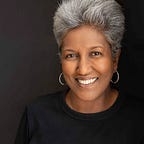Discussions with Anitra Nelson on A Life Without Money
We first met Anitra at Reboot the Future 2015, a conference organised by The Greens in Sydney. We’ve managed to connect for dinner as we pass through Castlemaine on our way to Tasmania. Anitra lives here when she is not working on her research at the School of Global, Urban and Social Studies at RMIT University in Melbourne. The murals and posters we discovered in Castlemaine hint at a community that attracts artist and activists.
Anitra’s advocacy for collaborative living has come from personal experience. She has lived in two Australian environmentally conscious cooperatives in Victoria, Commonground and Round the Bend Conservation Cooperative. She has also lived in the Blue Mountains in Sydney and been involved with various sharing initiatives there including the Fruit and Nut Tree Network. She believes that the biggest contribution she can make to transitioning to a more connected collaborative world is through her work as an academic and through her writing. She will spend 2016 writing Small is Necessary: The Efficiencies of Shared Living which will be published by Pluto Press in 2017.
Anitra recently wrote an article for the conversation titled In defence of eco-villages: the communities that can teach the world to live sustainably, where she talks about how we can reduce our footprint and live within earth’s capacity. Anitra has just edited a book titled: Life without Money: Building Fair and Sustainable Economies. We swapped books at the conference, exchanging her book for Steven’s book Rethinking the City — one small action in a life without money. Yet, swapping books when you have common interests is of no real consequence when you are trying to create a non-money economy. I have to admit that I find the idea of a complete transition to a non-monetary economy challenging. Yet Steven and I have been operating in the sharing economy since 2013 when we spent 6 months in Europe, trading skills in exchange for board and lodging. Today, we often conduct presentations and workshops free of charge, in exchange for building new connections through networks connected to The Greens.
Our dinner conversation explores what life without money would be like. It appears that many academics and activists like Anitra trace the problems in our world today — such as the GFC, environmental crises, the refugee problem and the widespread inequality — to our monetary economy. We are meeting and interacting with people around the world who are trying alternatives such as online local exchange trading schemes and other internet-based platforms for sharing, swapping and bartering. Anita draws a distinction between platforms like Uber and Airbnb that still use money as exchange, with those that are a direct swap or barter.
We discuss also how many people are moving into intentional communities, ecovillages, co-housing developments or are otherwise collaborating to transition their towns or simply their own lives so as to use fewer resources.
The greed, competitiveness and consumerism of the world we live in is not just becoming less attractive, a house in the suburbs is now unattainable for the younger generation, as they are being priced out of the housing market. The Australian Dream has become a nightmare for many, as communities struggle to cope with the level of debt that binds them to a life they no longer desire. People who are of retirement age are also looking for more collaborative ways of living, as they understand that social isolation and disconnection are major causes of disease and ill health.
We have also come to believe that the current system is a trap. Steven’s research on the Circular Economy and the idea to construct cities based on the ideas of Freedom, Equality and Compassion partly stem from the fact we had little free time when we lived in Sydney. Lives that are driven by financial success, obligation and routine are not meaningful. Our belief is that by collaborating with each other to provide for our basic needs of water, energy, food and housing, we can set each other free.
Yet, I have some doubts about a life completely devoid of money. I love to travel — and the infrastructure required for discovering other cultures and exploring the world is complex. Anitra responds to my struggle by explaining that perhaps if we travelled more slowly, making use of ships that transported goods for example, we could perhaps get around this hurdle. Many of the daily business trips that occur between Melbourne and Sydney could be eliminated through the use of technology such as video conferencing, or by reducing the complexity in how we operate.
We know that indigenous communities operated in the gift economy. If our cities were more decentralised and collaborative, it would be possible to trade skills and ideas with each other.
Anitra has given us a lot of resources to read and understand and we are looking forward to reading the book. The authors of this book argue that to truly connect with each other and with the natural environment around us, we have to free ourselves from the restrictions of money as a means of exchange. I feel we are on the verge of an evolution that will take us beyond the capitalist market system we see today. The information age is enabling many of us to integrate our work and our life and to collaborate with each other in a way that was not possible a generation ago.
It is time to start creating a new paradigm. Time to construct a world that is more compassionate, collaborative and will ultimately set us free to live passionate, meaningful lives.
First published by www.polisplan.com.au 30 December 2015
